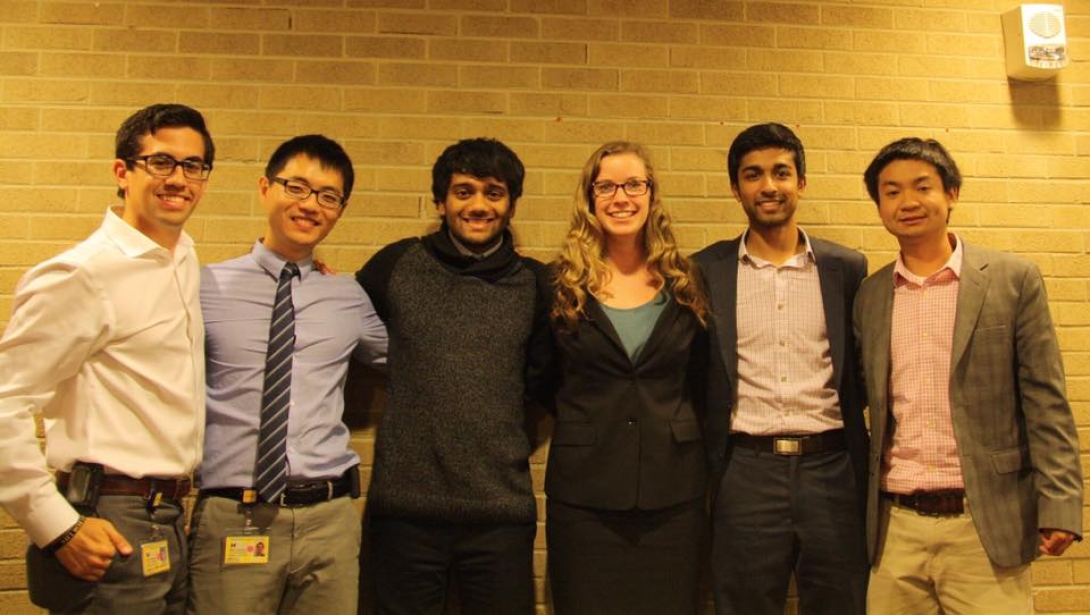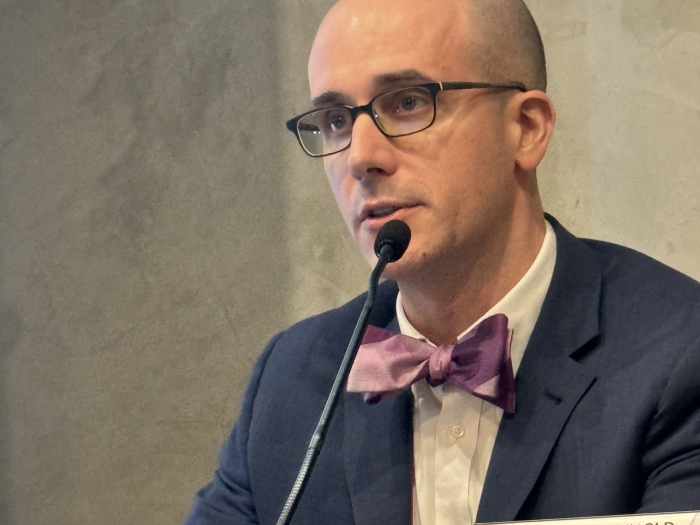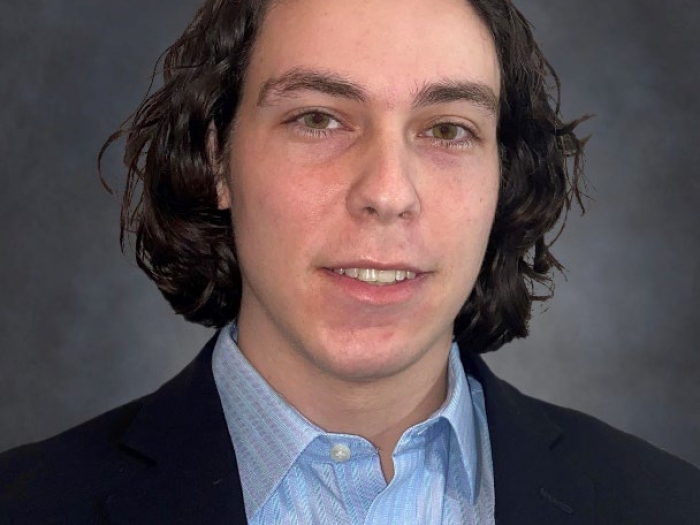Ask any of my friends here at Michigan what I studied before medical school and they could easily give you the answer: biomedical engineering. Just knowing that something worked was never enough for me, I always wanted to know "how can it work better." I spent quite a bit of time growing up just taking things apart around the house (this clock, that radio, the desktop, etc.) and eventually settled in at U of M for Biomedical Engineering. Here, I was able to learn the fundamentals of how things worked, and then eventually worked on projects of my own to see how I could make an impact with my knowledge. Like most students, I took the little bit I knew about engineering and attempted to innovate something novel in the med-tech space. Needless to say, I didn't get quite far on my first few endeavors simply because I hadn't accessed the right people and resources.
Three years ago, while I was arduously memorizing amino acids for the MCAT and finishing up a summer internship, I got a phone call from current M2s Abhinav Appukutty and Allison Powell, and recent U of M Medical School graduate Leo Li. That transcontinental call set the basis for founding Sling Health - Ann Arbor, a bioengineering design and entrepreneurship incubator that helps student teams address medical issues to improve health care. Sling Health is a national organization, partnered with the AMA, that started in St. Louis in 2013. Here at Michigan, we work to push the needle on student-led health innovation by empowering multidisciplinary student teams to take ideas to reality.
One of the greatest aspects of being here at Michigan is if you have an idea, faculty from all over the University will support you. Over the past three years, I have had the honor of bringing students AND faculty from across the medical, law, business, engineering, and public health schools together to create a community for student bio-design teams.
A typical year as a Sling team consists first of Problem Day, an event where students pitch project ideas and recruit their team members. Following this, teams present their progress at three design reviews where they obtain both faculty panelist and peer feedback on their progress, as well as financial and technical guidance on how to continue with their project. We've been fortunate to have partners in FFMI, the Zell Lurie Institute, the Innovation and Entrepreneurship Path of Excellence, the Office of Tech Transfer, and various Michigan Engineering and Michigan Medicine departments to help guide our project teams. At the end of each academic year, our project teams showcase their work at our Demo Day exposition, an annual exposition of student-powered health innovation from across U of M. Selected Sling Health teams then go on to compete at the National Demo Day event in St. Louis, MO.
When I first started my education here at Michigan as an undergraduate student five years ago, I was extremely concerned about how I would find my "community" of people at such a large school. As I help with preparations for this year's Demo Day (March 27th!!!), I'm reminded of the wide array of projects I've seen Sling teams pursue. From trying to reinvent the Bakri balloon for low-and-middle income countries to a novel mechanism for dental ultrasound, my peers continue to forge ahead with exuberance, creativity and imagination.
Three years ago when I took that phone call, I quickly realized I could help contribute to the empowerment of many more students and projects by starting Sling Health. On reflection, Sling Health has taught me about the power of a multidisciplinary environment in medical innovation, and I am able to use these experiences from multidisciplinary teams in health care as a medical student. As co-president of Sling Health this year, I am honored to have worked with our project team members, and I look forward to seeing what each group brings to the stage for Demo Day!


Department of Communication at Michigan Medicine
Want top health & research news weekly? Sign up for Health Lab’s newsletters today!





